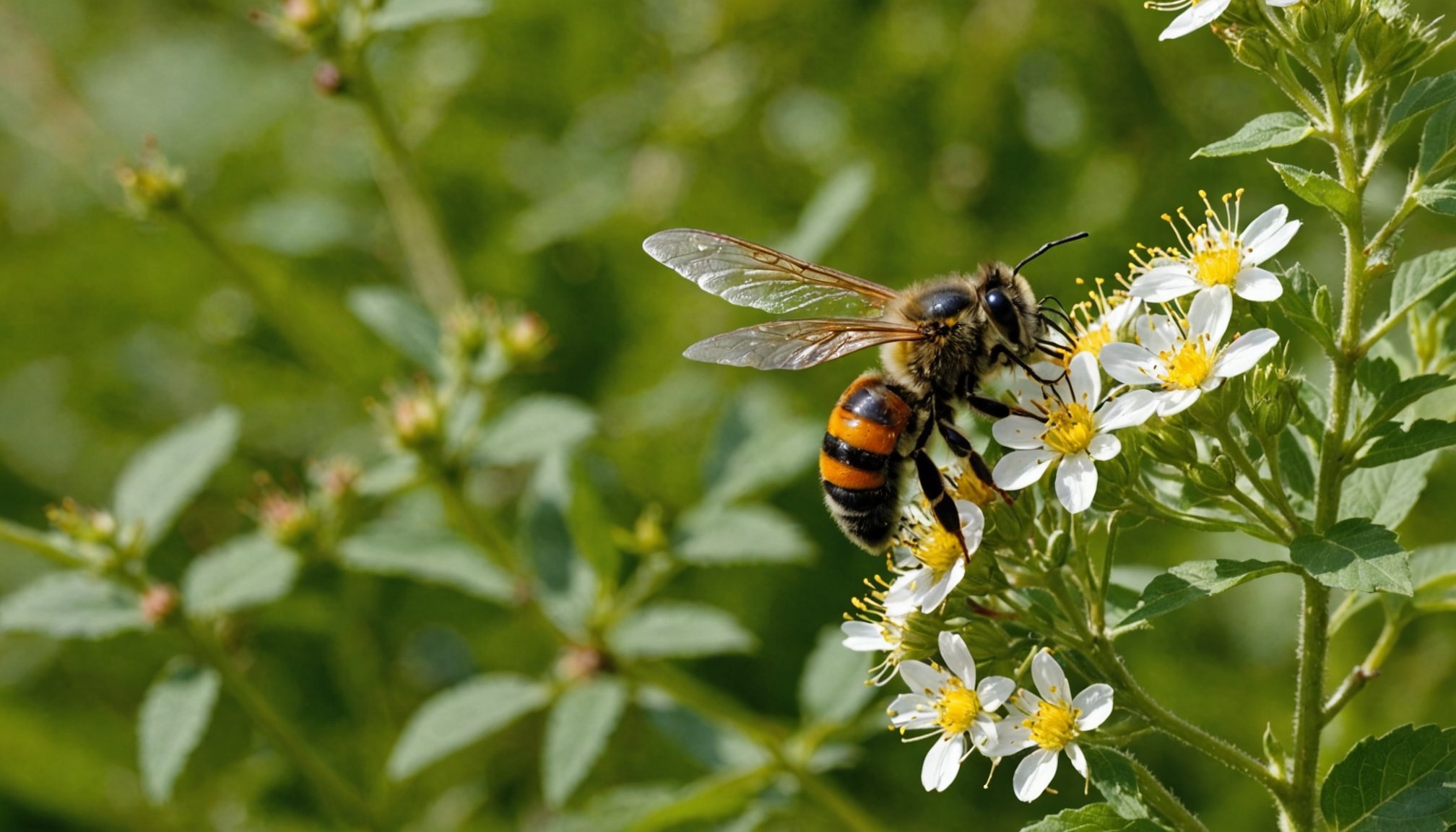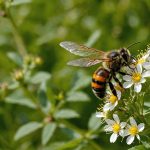Pesticide use in the UK poses significant risks to pollinators. These essential creatures play a vital role in our ecosystem and agricultural productivity. New research highlights the urgent need for policy reform aimed at protecting these populations. This transformation not only ensures healthier biodiversity but also fosters sustainable agricultural practices. Explore the necessary changes in pesticide regulations and their positive impact on pollinators, ultimately leading towards a more sustainable future for our environment.
Overview of Current UK Pesticide Policies
Understanding UK pesticide regulations requires a look into their historical context. Traditionally, these regulations have been shaped by a balance between agricultural needs and environmental protection. Over the years, environmental protection laws have increasingly influenced policy changes to ensure sustainable farming practices.
A voir aussi : Essential Guidelines for Reporting Marine Mammal Strandings Along UK Shores
Recently, there have been significant pesticide policy changes. These updates reflect a growing emphasis on reducing chemical use to protect biodiversity and human health. The UK government has introduced stricter guidelines on the use of certain pesticides, aligning with broader environmental goals.
Several government agencies play crucial roles in pesticide management. The Department for Environment, Food & Rural Affairs (DEFRA) is a key player, overseeing the implementation of pesticide policies. Additionally, the Health and Safety Executive (HSE) is responsible for the regulation and safety assessment of pesticides, ensuring compliance with established standards.
A voir aussi : Exploring the Effects of UK Climate Change Policies on Native Amphibian Populations
These agencies work collaboratively to monitor and enforce UK pesticide regulations, ensuring that agricultural practices do not compromise environmental integrity. By maintaining a robust regulatory framework, the UK aims to balance agricultural productivity with ecological preservation, reflecting a commitment to sustainable development.
Impact of Pesticide Use on Pollinator Health
Understanding the effects of pesticides on pollinator health is crucial for maintaining ecological balance. Studies have shown a significant link between pesticide use and the decline in bee populations. One key study highlights that neonicotinoids, a common class of pesticides, severely impact bees' ability to forage and reproduce. This research underscores the urgency of addressing pesticide effects to safeguard pollinators.
Harmful Pesticide Types
Certain pesticides are particularly detrimental to pollinators. Neonicotinoids, for example, have been identified as a major contributor to pollinator decline. These chemicals affect the central nervous system of insects, leading to disorientation and reduced survival rates. Additionally, organophosphates and pyrethroids have been found to harm bees by disrupting their natural behaviours and immune systems.
Ecological Consequences
The decline in pollinator populations has far-reaching ecological consequences. Pollinators play a vital role in the reproduction of flowering plants, which are essential for food crops and biodiversity. Reduced pollinator numbers can lead to lower crop yields and a decrease in plant diversity. This not only threatens food security but also disrupts entire ecosystems. Protecting pollinator health through responsible pesticide management is therefore critical for sustaining both agriculture and natural environments.
Importance of Pollinators in Ecosystems and Agriculture
Pollinators play a crucial role in ecosystems by facilitating plant reproduction. This group includes bees, butterflies, moths, and even some birds and bats. Their primary function is to transfer pollen from one flower to another, enabling plants to produce fruits and seeds. This process not only supports plant diversity but also maintains the balance of entire ecosystems.
In agriculture, the ecosystem services provided by pollinators are invaluable. They are responsible for the pollination of many crops, including fruits, vegetables, and nuts. This natural service boosts agricultural productivity by improving crop quality and yield. Without pollinators, the agricultural sector would face significant challenges, leading to increased food prices and reduced availability.
The economic value of pollinators is substantial. In the UK alone, pollinators contribute hundreds of millions of pounds annually to the agricultural economy. A notable case study is the almond industry, which relies heavily on bee pollination. The presence of bees has been shown to enhance almond crop yields by up to 40%, demonstrating their critical contribution to agricultural success.
By understanding and supporting the role of pollinators, we can ensure the sustainability of both natural ecosystems and agricultural productivity.
Sustainable Agricultural Practices
Incorporating sustainable farming practices is essential for protecting pollinators and ensuring ecological balance. Agroecology, a holistic approach, integrates ecological principles into farming systems to enhance biodiversity and sustainability. This method supports natural pest control, reducing reliance on harmful pesticides that threaten pollinator health.
Organic farming techniques also play a pivotal role in sustainable agriculture. By avoiding synthetic chemicals and promoting soil health, organic practices create environments where pollinators can thrive. Techniques such as crop rotation, intercropping, and the use of natural pest predators contribute to a balanced ecosystem, supporting pollinator populations.
Several successful sustainable farming initiatives in the UK demonstrate the benefits of these practices. For instance, farms adopting agroecological methods have reported increased biodiversity and improved crop resilience. One notable example is the Knepp Estate, which employs rewilding and organic farming techniques, resulting in a flourishing pollinator population and enhanced soil fertility.
By integrating sustainable farming practices, the agricultural sector can reduce its environmental impact while supporting pollinator health. This approach not only benefits the ecosystem but also enhances food security and ensures long-term agricultural productivity. Sustainable farming is key to a harmonious coexistence between agriculture and nature.
Expert Insights and Advocacy on Pesticide Policies
Gaining a deeper understanding of pesticide policies requires insights from both environmental scientists and policy experts. Interviews with these professionals reveal a consensus on the need for stricter regulations to safeguard pollinators. Experts highlight that current policies often fail to address the complexities of pesticide impacts on ecosystems. Their recommendations focus on integrating scientific research into policy-making, ensuring that regulations are both effective and adaptive to new findings.
Environmental advocacy groups play a pivotal role in shaping pesticide policies. Organisations such as Friends of the Earth and the Pesticide Action Network actively campaign for reduced pesticide use. They work tirelessly to raise public awareness about the dangers of certain chemicals, lobbying for legislative changes that prioritise ecological health. Their efforts have led to increased governmental scrutiny and the adoption of more sustainable practices.
Policy recommendations from experts and advocacy groups often emphasise the importance of pollinator protection. Suggestions include promoting alternative pest control methods, enhancing monitoring systems, and increasing funding for research on pesticide effects. By implementing these strategies, policymakers can create a more resilient agricultural system that supports both productivity and environmental integrity. This collaborative approach ensures that pesticide regulations evolve to meet the challenges of modern agriculture.
Future Trends in UK Pesticide Regulations
As the future of pesticide policies evolves, several regulatory trends are emerging, driven by a commitment to environmental sustainability. Predictions suggest that upcoming changes in pesticide regulations will increasingly focus on reducing chemical dependency and promoting eco-friendly alternatives. This shift aims to enhance biodiversity and protect pollinators, aligning with global environmental goals.
Technology and innovation are poised to play a significant role in developing sustainable pesticide alternatives. Advances in precision agriculture, such as drones and automated systems, offer promising solutions for targeted pest control. These technologies minimise chemical use while maintaining crop health, thus supporting sustainable farming practices.
Public awareness and advocacy are expected to have a profound impact on future policies. As citizens become more informed about the ecological consequences of pesticide use, there is growing pressure on policymakers to adopt stricter regulations. Advocacy groups have been instrumental in pushing for legislative changes that prioritise ecological health, ensuring that future policies reflect public concerns.
The regulatory trends in the UK are likely to focus on integrating scientific research into policy-making. This approach will ensure that regulations remain adaptive to new findings, fostering a resilient agricultural system that balances productivity with environmental integrity.













